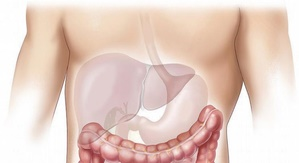New Delhi, 26 April (IANS). Director of the Institute of Liver and Billionary Sciences (ILBS), Dr. SK. Sarin said that it is very important to get a good sleep and avoid junk food to keep the liver healthy.
Dr. Sarin wrote on the social media platform ‘X’, “As it is clear by its name, junk food is worth throwing it in the garbage. If you keep eating it daily, the liver can suffer serious harm. It should be put in dustbin. If you consider your stomach and intestines as dustbin, then only eat it.”
Junk food contains poor fats, more sugar and processed items, which increase the risk of diseases like obesity, high cholesterol and type 2 diabetes. These diseases can cause non-alcoholic fatty liver disease and can later turn into serious problems like cirrhosis or liver cancer.
Dr. Sarin also said that people should sleep on time and should not eat food late at night, because it affects good bacteria in the stomach, which are very important for health. Research has shown that people who do not sleep properly are more at risk of getting fatty liver disease.
In addition, eating late at night can cause damage to the liver, as the body is unable to digest fat and carbohydrates properly at bedtime, causing it to accumulate in the liver.
Doctor Sarin said, “Both sleeping late and eating late at night are not good. Your intestinal bacteria will also work late. So getting good sleep is the best solution.”
Dr. Sarin advised people not to lose their health by running after money, strength and high positions. A healthy body and good sleep gives real happiness.
Non-alcoholic fatty liver disease, which is now called metabolic dysfunction-socted steetotic liver disease, occurs when fat in the liver of those who do not consume alcohol. The disease affects people with diabetes, obesity, high blood pressure or high cholesterol.
Fatty liver disease has emerged as a major liver disease in India and three out of 10 people in the country are affected by it. In September last year, the Union Ministry of Health released new guidelines and training programs for metabolic dysfunction-assistant Fatty Liver Diseases (MAFLD). Its purpose is to quickly detect the disease and improve patients’ care and treatment results.
-IANS
AS/
